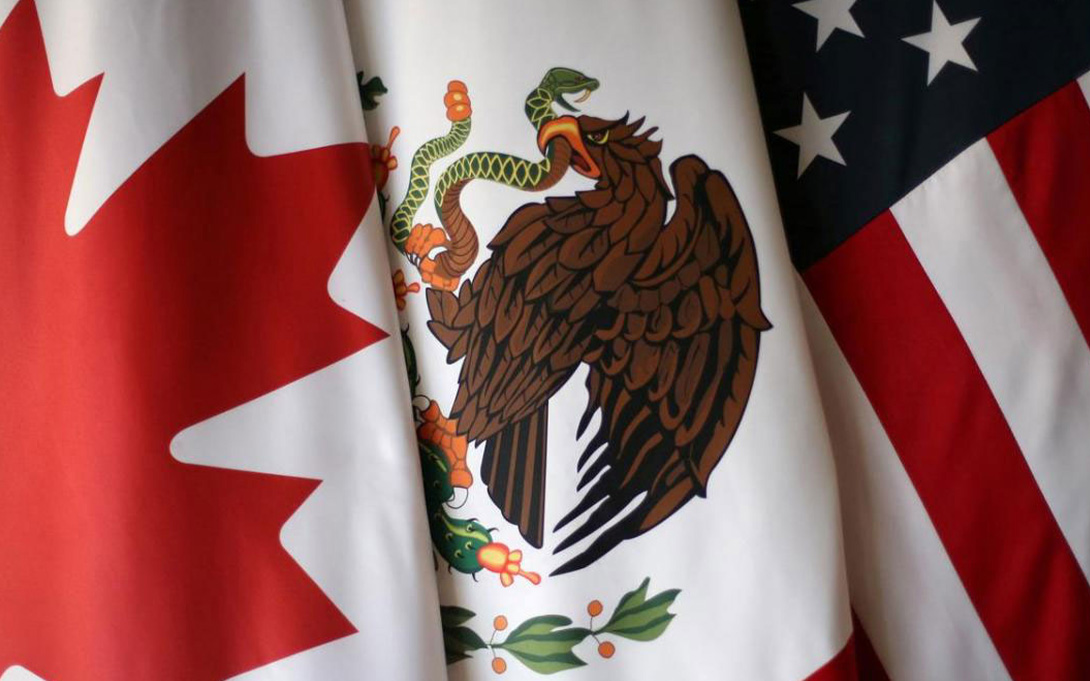
The North American Colloquium (NAC) is a forum that strengthens a wider North American conversation and more fruitful trilateral cooperation between Canada, Mexico and the U.S., led by the International Policy Center at the University of Michigan’s Ford School of Public Policy, the Autonomous National University of Mexico’s Center for Research on North America, and the University of Toronto’s Munk School of Global Affairs.
The 2020-2021 NAC, hosted by the Ford School, focused on climate policy through a series of webinar events and research collaborations looking at challenges and opportunities for a continental strategy. The results of that work are now available online, including the eight reports that emerged, and recordings of the 11 webinars.
Barry Rabe, chair of the year’s activities, coordinated the collaborations. Reflecting on the theme, he said, "North America has seen many false starts but a few significant advances in continental environmental protection over recent decades. We built on the North American Colloquium framework and assembled a dream team of established and emerging scholars from all three nations, leading to an engaging set of webinars and now published papers. These explore possibilities for bilateral or continent-wide advances on climate in many important areas. And we are excited to know that they will set the stage for ongoing work."
"For too long, climate policymaking has been too siloed. A state or province does something that sounds good locally, without thinking through the implications of how the policy fix will operate in the context of such a global problem. What was so rewarding about this project was that it brought together a stellar group of analysts with the charge of thinking cross-nationally and even continentally about opportunities for collaboration and coordination," said postdoctoral research fellow Joshua Basseches, who was instrumental in creating and leading the webinar series.
The research papers of the NAC Climate Series:
A decade of comparative Canadian and American public opinion on climate change, by Erick Lachapelle (University of Montreal), Chris Borick (Muhlenberg College)
City powers and the governance of urban GHG emissions in the U.S. and Canada, by Sara Hughes (University of Michigan)
Mexico-US cross-border electricity hubs: Limitations and opportunities for decarbonization, by Marcela López-Vallejo (Universidad de Guadalajara)
The US-Canada (clean) electricity relationship: Challenges and opportunities in policy design and coordination, by Joshua Basseches (University of Michigan) and Nwamaka Ikenze (European University Institute)
Canada-US relations, energy security, and the road to net zero by 2050, by Monica Gattinger (University of Ottawa)
The politics of short-lived climate pollutants and North American methane policy, by Barry Rabe (University of Michigan)
The 'dark horse' of climate change: Agricultural methane governance in the United States and Canada, by Trish Fisher (University of Michigan)
Canada-US green bilateralism: Targeting cooperation for climate mitigation, by Debora VanNijnatten (Wilfrid Laurier University), Mark McWhinney (Carleton College)
The webinar series:
Carbon Province, Hydro Province: The Challenge of Canadian Energy and Climate Federalism
Whither American Climate Policy? Lessons from the Trump Presidency and U.S. State Policy Engagement
"Perspectives from the Periphery”
Energy Regulation in North America
Public Opinion on North American Climate Policy
Urban Climate Governance in North America
Siting Renewable Energy in North America
North American Electricity and Energy Security
North American Methane Policy and "Green Bilateralism"
U.S.-Canada climate public opinion and urban climate governance
Special thanks for support are due to the Ford School's International Policy Center (IPC), Center for Local, State, and Urban Policy (CLOSUP), and the Meany Family Foundation
More news from the Ford School